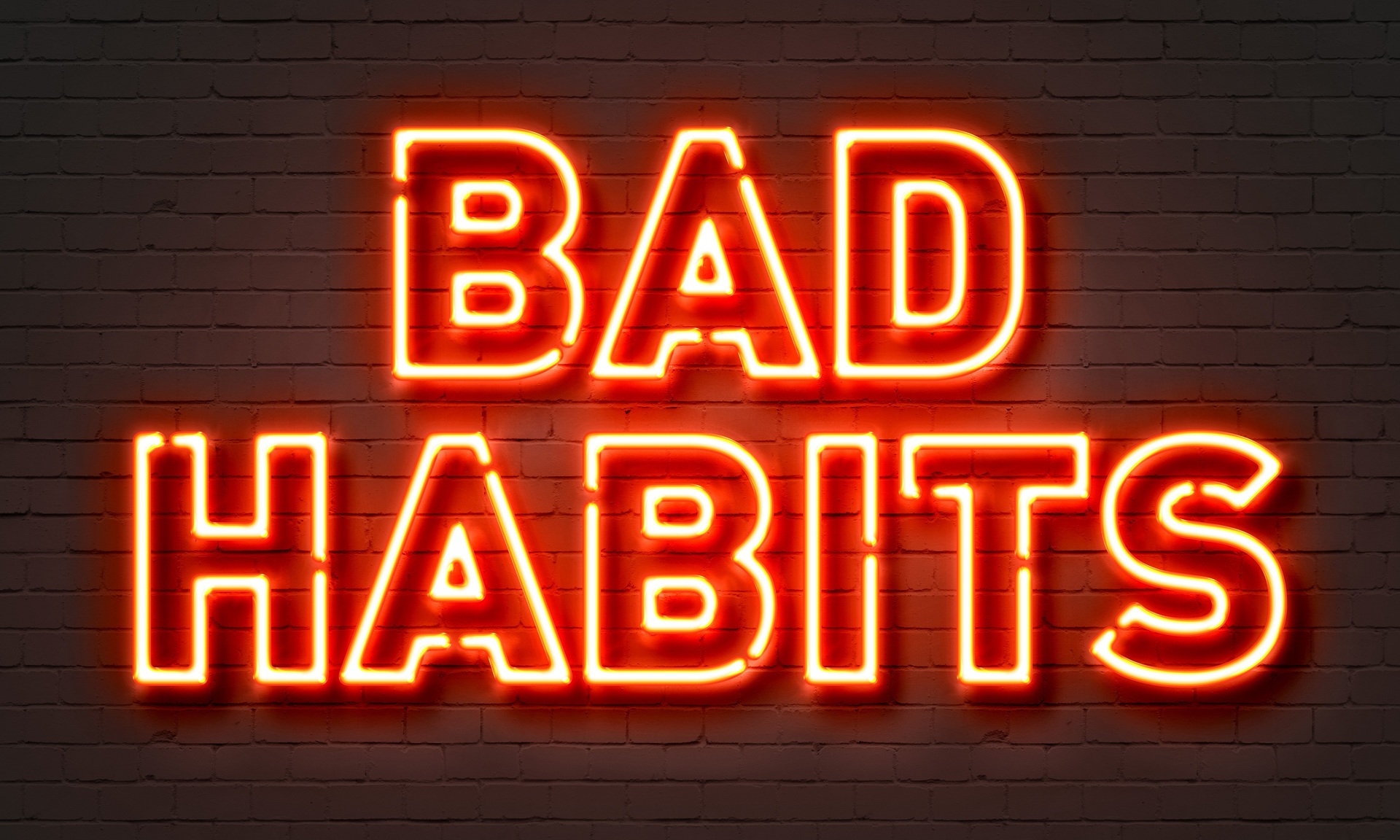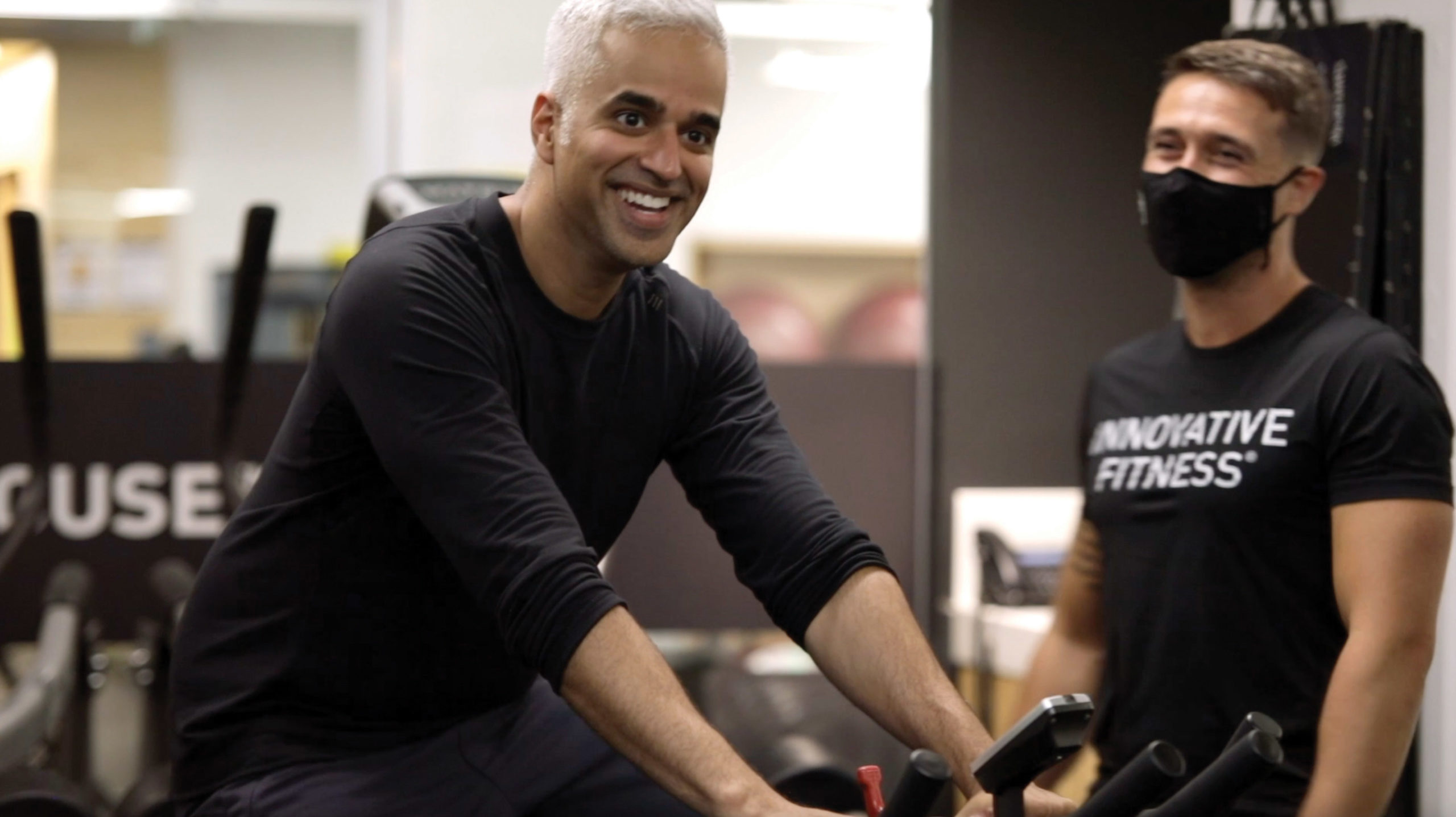Humans are creatures of habit
Your daily routine probably looks fairly similar on most days:
- Wake up late after hitting the snooze button a few too many times
- Skip the workout you planned because you overslept… again.
- Scramble to get the kids fed and ready for school… while you get yourself ready for work
- Load the family into the car while double-checking you haven’t forgotten anything important
- Drop the kids off at school
- Stop in to Starbucks on your way to work to grab a coffee and a bite because you were so busy trying to get everyone else out the door that you didn’t have time to eat yet
- Plow down breakfast on-the-go or at your desk while checking emails
- Work/meeting/calls/emails
- “Oh, I should probably eat lunch! I’ll just pop out fast and grab something quick to bring back to my desk…”
- Work/meeting/calls/emails
- Rush home from work to whip up dinner, or work late and decide to pick something up on the way home instead of cooking.
- Clean the kitchen (maybe)
- Get everyone ready for bed
- More work/emails
- Set the alarm that you’ll most likely hit snooze on a few times tomorrow
- Lather. Rinse. Repeat.
The above scenario may not perfectly describe your every day, but chances are you can draw a few parallels between this and your own experience.
Most people are more reactive in their days than they would like, and inevitably reach the end of a typical day feeling like they failed to get everything done they had hoped to.
This begs the question, “Where do things go wrong?” How is it we often seem to find ourselves in these reactive states when it comes to our health, rather than working proactively towards our goals?
The more we repeat patterns like the one above the more likely we are to continue to do so. This can often result in the feeling of “grinding it out” just to get you through one day and on to the next.
It’s hard in the sense that we always feel like we’re behind the eight ball, but it’s easy enough for us to wake up and keep going through the same motions over and again.
In order to change a pattern, you need to create a new one
This may feel more difficult at first, but the end result – if done strategically – will be that it is easier for you to accomplish more of the things you want each day.
Parkinson’s Law tells us that our work will expand to fill the allotted time. This basically means that all the stuff you keep saying you’ll get to when you “have the extra time” will never actually get done until you MAKE (or take) time for it.
Also worth noting is that research has found that people who exercise regularly are more productive in the workplace than people who don’t. This can often mean they get more work done during a typical workday than their non-exercising coworkers, thus they end up working less overtime, and take less work home with them on a regular basis.
One research study conducted on this subject had the experimental group take time out of their workday to exercise. The result was that they were more – or in some cases equally – productive in terms of total work accomplished, when compared to the control group who worked the full workday and did not exercise.
Because of its proven ability to positively impact performance at work, improve health, and increase overall energy levels, we believe exercise is a vital area to focus your initial efforts when trying to improve your daily routine.
How Do You Create New Habits?
The classic straight line towards developing or creating a new habit is: Trigger > Action > Reward
In the case of your new morning workout your “trigger” could be setting your workout clothes next to your alarm clock so that they remind you of your previous night’s intentions when your alarm goes off in the morning. This visual trigger creates a small interruption in your default pattern of hitting the snooze button, thus creating a window of opportunity to break the pattern and start to form a new one.
The “action” would be getting up and completing your planned workout. And the “reward” could be something as simple as taking 5-10 minutes after your fitness session to enjoy a home brewed cup of coffee in relative peace and quiet, before the rest of the family gets up.
Sometimes our routine has become so ingrained that a trigger isn’t enough to break the cycle. Sometimes you need proper accountability.
This might mean finding a workout buddy to help hold you accountable, or it might mean hiring a professional coach.
One lesson we’ve learned from the COVID-19 pandemic is that many of our old preconceived notions about humans only being effective in face-to-face environments such as the office or in a gym, are not as true as we once thought.
Plenty of people have started working from home and have found that they’re equally – or in some cases more – productive compared to going into the office every day.
Likewise, people who have traditionally believed that they need to go into the gym for a quality training session with their coach have found that Remote Personal Training can be just as effective as in-person!
The added accountability of an appointment on your calendar – plus another human being waiting for you to show up, whether in-person or online, might be all it takes for you to build a solid habit of exercise, and begin reclaiming control over your schedule and balance in your life once and for all.
Blog Credit: Sean Allt






